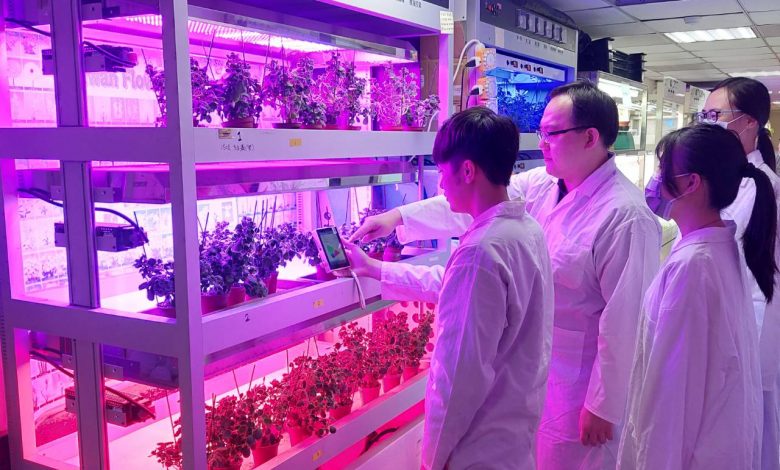Accomplishment of researches on physiological and molecular responses to biotic and abiotic stresses in crops by Dept. of Horticulture and Biotechnology of Chinese Culture University

Global climate changes affect ambient temperature, rainfall pattern, sea level rise, saltwater intrusion, increased drought and waterlogging periods, evapotranspiration, etc. These changes have compounded the effect of these stresses on horticultural crop productivity, and these stresses are involved in short- or long-term alterations of steady-state physiological activity. Some plants can cope with or are more tolerant to stresses by molecular, biochemical mechanisms and to morphoanatomical changes and allow plants to overcome or adapt to stress conditions.
Understanding the complexity of both molecular and physiological factors that contribute to stress tolerance in horticultural crops is essential to maintain the productivity and quality of these crops. Our research team has been focusing on both practical and applied plant biotechnology, including whole genome analysis, identification and activation of key target genes, signaling molecules and transduction, biosynthetic pathways, secondary metabolites, phenotypic plasticity, omics, the mechanisms of photosynthetic responses, plant acclimation, marker-assisted breeding, and their contributions to tolerance to stresses.
Recently, we studied the interactions among abscisic acid, ethylene, and gibberellins that affect seed germination, seedling growth, leaf development, and stress responses, and several aba deficient suppressor mutants in Arabidopsis were identified based on their sensitivity to high glucose or high salt. In addition, one of our studies focuses on the understanding of iron homeostasis in plants and how they sense the internal nutrient and availability status to trigger the input pathway of circadian clock during growth and development. Plant cell, tissue, and organ cultures are also significantly highlighted in our Department. For example, we established in vitro plant regeneration from protocorm of Bletilla formosana (Hayata) Schltr which can be utilized for efficient mass propagation and germplasm conservation. Furthermore, we also firstly reported of Pectobacterium aroidearum causing bacteria soft rot disease of white calla lily (Zantedeschia aethiopica [L.] Spreng.) in Taiwan. The integration of all possible efforts is needed to ameliorate the adverse effect of stresses in those important horticultural crops.
Our recent published articles related to the above mentioned areas and multidisciplinary comparative studies can be viewed as follows.
https://apsjournals.apsnet.org/doi/full/10.1094/PDIS-07-19-1462-PDN
https://www.sciencedirect.com/science/article/abs/pii/S0304423820300418
https://onlinelibrary.wiley.com/doi/epdf/10.1111/pce.14154
https://www.cabi.org/isc/abstract/20203180066
https://journals.ashs.org/hortsci/view/journals/hortsci/54/12/article-p2262.xml
https://pubmed.ncbi.nlm.nih.gov/33274450/
https://www.sciencedirect.com/science/article/abs/pii/S0168945221000388




